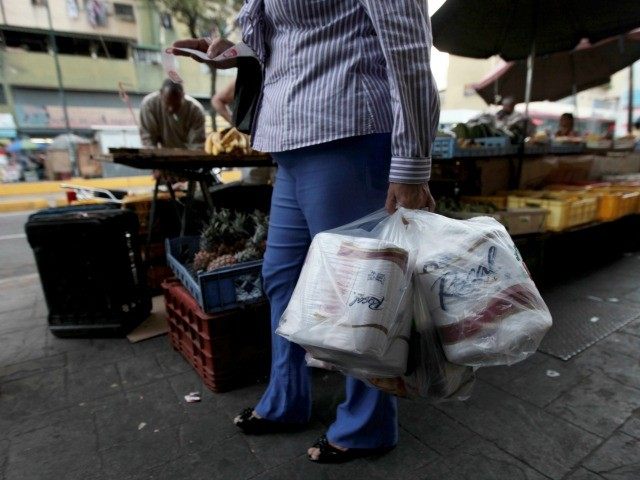A Cuban state media outlet confirmed last week that the nation’s capital, Havana, is suffering significant shortages of toilet paper. While the absence of common goods in the communist nation is not uncommon, such acknowledgment of a problem is rare.
The state newspaper Juventud Rebelde (“Rebellious Youth”) reported on Wednesday that toilet paper had “disappeared” from stores in Havana, announcing that the government’s state-run producer of toilet paper had acquired new machinery to generate toilet paper.
“They are not the super-machines, but they have an elevated technology level,” toilet paper engineer Manolo González García told the newspaper. One advantage of the new machines, he explains, is that they can simultaneously churn out two types of toilet paper rolls: a high-quality one for tourists, and an “ecological” one to sell to Cuban citizens.
The Miami-based Cuban news outlet Martí Noticias noted this week that Havana has suffered major shortages of toilet paper “for weeks” before Juventud Rebelde reported on them. Diario de Cuba adds that the Castro regime has begun importing higher numbers of toilet paper rolls from Vietnam while it adjusts its ability to produce the paper domestically, citing Spanish newswire service EFE.
While Cuban communist media covering the shortages may be new, EFE notes that “toilet paper shortages have been a constant in Cuban homes since the crisis of the 1990s, leading many families to use official state newspaper as toilet paper.” After decades of having its communist government subsidized by the Soviet Union, Cuba suffered what the Castro regime has dubbed the “special period” of extreme poverty following the collapse of its patron in the 1990s. Cuba has since established a close relationship with Venezuela, which has provided free oil and key resources to keep the regime afloat.
Venezuela itself, thanks to the imposition of a similar socialist economic system to that of Cuba, began experiencing toilet paper shortages in 2013. By 2015, Venezuelan luxury hotels began requesting that visitors bring their own toilet paper into the country to guarantee they would have access to it. That year, the Venezuelan government cut a deal with Trinidad and Tobago to essentially buy toilet paper with its crude oil, which did little to stop the shortages. The Venezuelan military announced this year that soldiers participating in the violent repression of anti-socialist protests could expert to be rewarded with rolls of toilet paper.
Venezuela’s oil reserves have not been enough to stop toilet paper shortages in Cuba, just as they have failed Venezuela. In 2009, for example, Miami’s El Nuevo Herald reported on the growing popularity of the previously noted phenomenon of using communist propaganda as toilet paper—not as a political statement, but out of necessity. Toilet paper is particularly hard to find because “it is not included in the ration cards that cover basic products at highly subsidized prices.”
“Chinese and North Korean magazines are the favorites because of the softness of the paper,” the Herald noted at the time.
Far more recently, in October, Diario Las Americas cited Hurricane Irma as having significantly hurt Cubans’ ability to acquire basic good like toilet paper. At the time, an unnamed official told the newspaper that “there is no such shortage” of paper, denying what the government would apparently find itself with no choice but to accept as reality a month later.
The Cuban government has consistently blamed the U.S. embargo on trade with the communist nation for its economic woes, despite the fact that Cuba has the rest of the world’s markets open to it and maintains friendly relations with economic giants like China. While President Barack Obama lifted some restrictions on American business in Cuba, those have largely served to enrich government-owned entities on the island.

COMMENTS
Please let us know if you're having issues with commenting.